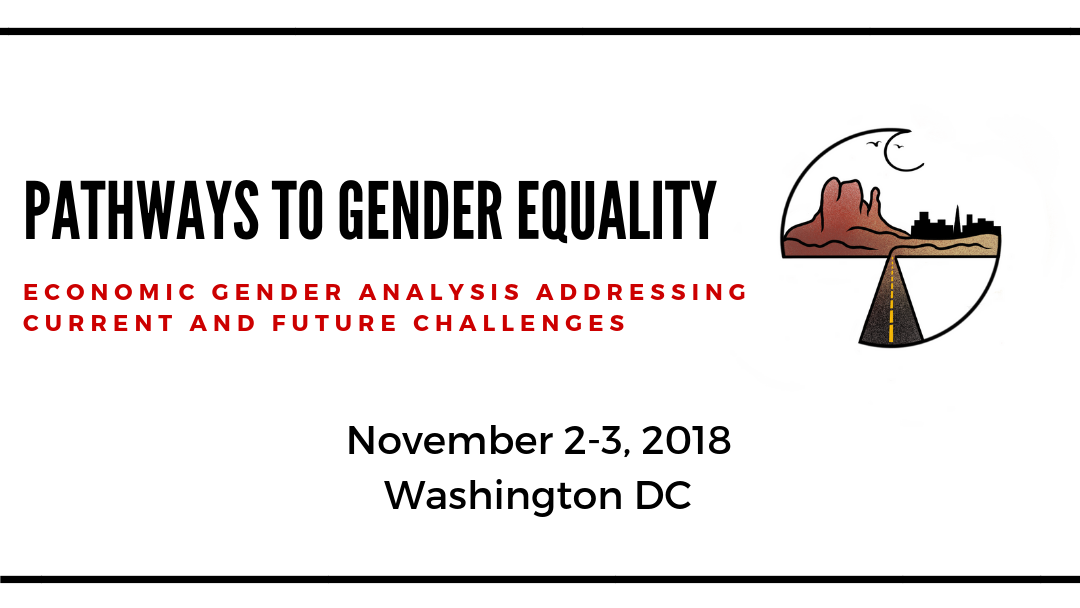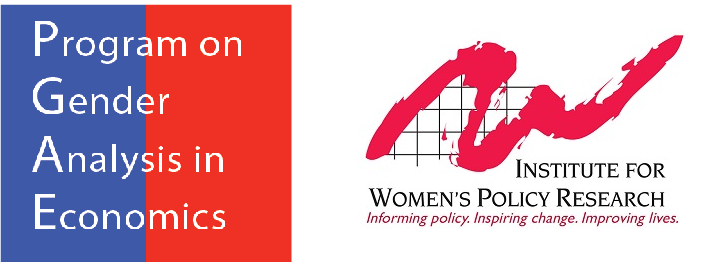Contact Us
Contact:
Arnold, Glen Wayne
Administrative Coordinator

Sponors

Program on Gender Analysis in Economics (PGAE)
The Program on Gender Analysis in Economics (PGAE) of American University's Department of Economics was launched in 2008, as the first program in the United States to offer formal graduate training that emphasizes both theoretical and empirical economics that is integrated with gender perspective. The work of the PGAE is based on the premise that the advancement of women's rights, gender, equality, and women's empowerment requires informed social and economic policy analysis. Learn more on the PGAE webpage.
Institute for Women's Policy Research (IWPR)
The Institute for Women's Policy Research (IWPR) conducts and communicates research to inspire public dialogue, shape policy, and improve the lives and opportunities of women of diverse backgrounds, circumstances, and experiences. Named a top think tank in the United States, IWPR's action-oriented social science research has shaped the conversation on issues such as the gender wage gap, employment and job discrimination, intimate partner violence, educational access, the status of women, poverty and welfare reform. Learn more on the IWPR webpage.
The Open Society Foundations (OSF)
The Open Society Foundations work to build vibrant and tolerant societies whose governments are accountable and open to the participation of all people. OSF seeks to strengthen the rule of law; respect for human rights, minorities, and a diversity of opinions; democratically elected governments; and a civil society that helps keep government power in check. Working in every part of the world, the Open Society Foundations place a high priority on protecting and improving the lives of people in marginalized communities. Learn more on the OSF webpage.
